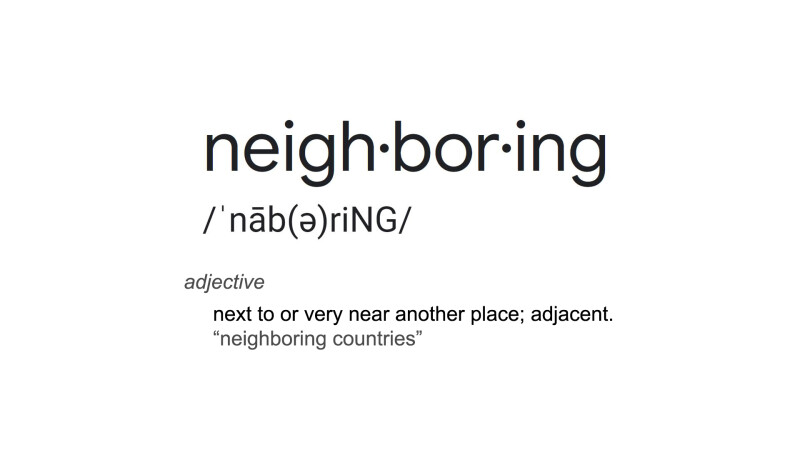
I’ll admit it. We are not using this word in accordance with the dictionary. Technically speaking, the word, neighboring, is an adjective used to describe something situated next to or very near something else. For example, Bedford is one of the neighboring cities to Hurst.
Our intended use of the word is to describe the act of being in relationship with someone who happens to live in proximity to our church, within our South Hurst community. It is a word we have stretched, perhaps, to encompass the work of being a good neighbor.
Several people have commented that this emphasis is not clear. Why are we focused on our neighbors? Why is this important for us as a church?
Jesus told us that the greatest commandment was to love God with everything we’ve got – heart, soul, mind, and strength. He then said the second commandment is like it – to love your neighbor as you love yourself. (Matt 22:37-39; Mark 12:29-31; Luke 10:27; similarly John 13:34)
All four gospels emphasize the importance of loving God. How do we love God? We love God by loving our neighbors and loving ourselves.
The challenge, I believe, is that we fail to recognize how closed off we are to forming new connections with new neighbors. We know the people who sit next to us in church. We know the people who are in our Sunday small group or in one of the other groups we participate in. Why do we need to get to know more people? Especially people who are not connected to our church?
This is where the rest of Jesus’s teachings speak into this work we call neighboring. Jesus sends us out, he keeps moving from place to place, in order to help as many people as possible know themselves to be beloved children of God. He invites us, calls us, exhorts us to continue that work here. Now. To set aside everything that makes us uncomfortable about getting to know people because we are so much more concerned with sharing God’s love.
Neighboring, then, could simply be another word for loving – at least, in the ways in which we intend to move towards it. It is an act of wonder and discovery, of seeking to know the people around us simply to know them, to see them as God’s beloved children. It is curiosity without an agenda.
Maybe step one is to ask yourself if you truly identify yourself as a beloved child of God – I mean, down to the core of your being own that identity? Once you do, once you honestly and authentically experience the incredible gift of being so loved, it just requires a tiny step to want to make sure that everyone else can experience God’s love, too. Opening ourselves to God’s love fills us so fully that we overflow, we want to fill up everyone’s cup with that incredible life-giving love God offers to us.
We will continue to work on our understanding of neighboring, to create opportunities to learn more and experience what it means to be a good and loving neighbor. In the meantime, let God love you. All the way. You really are a beloved child of God!

